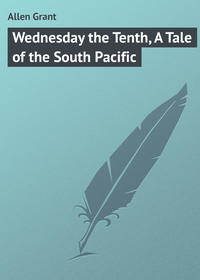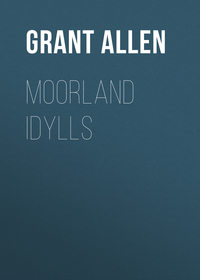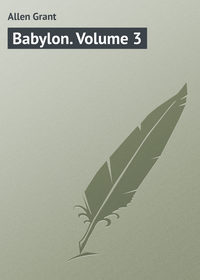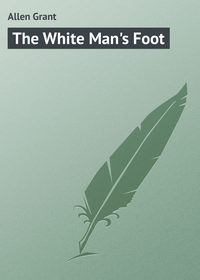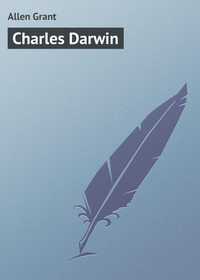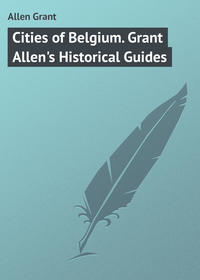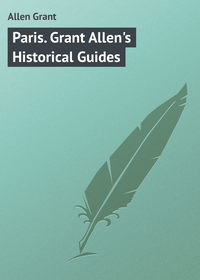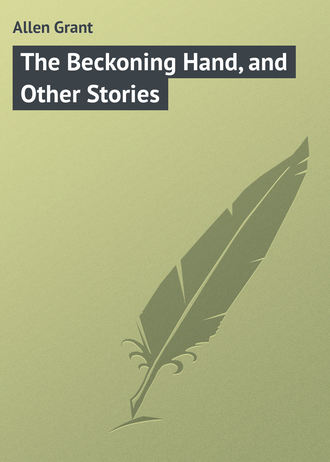 полная версия
полная версияThe Beckoning Hand, and Other Stories
The Governor came out, holding an official-looking paper in his right hand. "No. 1430," he said in a loud voice, "stand forward." And I stood forward.
"No. 1430, I have the pleasant duty of informing you, in face of all your fellow-prisoners, that your heroism and self-devotion in saving the life of Warder James Woollacott, when he was attacked and almost overpowered on the twentieth of this month by a gang of rebellious convicts, has been reported to Her Majesty's Secretary of State for the Home Department; and that on his recommendation Her Majesty has been graciously pleased to grant you a Free Pardon for the remainder of the time during which you were sentenced to penal servitude."
For a moment I felt quite stunned and speechless. I reeled on my feet so much that two of the warders jumped forward to support me. It was a great thing to have at least one's freedom. But in another minute the real meaning of the thing came clearer upon me, and I recoiled from the bare sound of those horrid words, a free pardon. I didn't want to be pardoned like a convicted felon: I wanted to have my innocence proved before the eyes of all England. For my own sake, and still more for Emily's sake, rehabilitation was all I cared for.
"Sir," I said, touching my cap respectfully, and saluting the Governor according to our wonted prison discipline, "I am very greatly obliged to you for your kindness in having made this representation to the Home Secretary; but I feel compelled to say I cannot accept a free pardon. I am wholly guiltless of the crime of which I have been convicted; and I wish that instead of pardoning me the Home Secretary would give instructions to the detective police to make a thorough investigation of the case, with the object of proving my complete innocence. Till that is done, I prefer to remain an inmate of Portland Prison. What I wish is not pardon, but to be restored as an honest man to the society of my equals."
The Governor paused for a moment, and consulted quietly in an undertone with one or two of his subordinates. Then he turned to me with great kindness, and said in a loud voice, "No. 1430, I have no power any longer to detain you in this prison, even if I wished to do so, after you have once obtained Her Majesty's free pardon. My duty is to dismiss you at once, in accordance with the terms of this document. However, I will communicate the substance of your request to the Home Secretary, with whom such a petition, so made, will doubtless have the full weight that may rightly attach to it. You must now go with these warders, who will restore you your own clothes, and then formally set you at liberty. But if there is anything further you would wish to speak to me about, you can do so afterward in your private capacity as a free man at two o'clock in my own office."
I thanked him quietly and then withdrew. At two o'clock I duly presented myself in ordinary clothes at the Governor's office.
We had a long and confidential interview, in the course of which I was able to narrate to the Governor at full length all the facts of my strange story exactly as I have here detailed them. He listened to me with the greatest interest, checking and confirming my statements at length by reference to the file of papers brought to him by a clerk. When I had finished my whole story, he said to me quite simply, "Mr. Tait, it may be imprudent of me in my position and under such peculiar circumstances to say so, but I fully and unreservedly believe your statement. If anything that I can say or do can be of any assistance to you in proving your innocence, I shall be very happy indeed to exert all my influence in your favour."
I thanked him warmly with tears in my eyes.
"And there is one point in your story," he went on, "to which I, who have seen a good deal of such doubtful cases, attach the very highest importance. You say that gold clippings, pronounced to be similar in character to the gold Wulfric, were found shortly after by a cleaner at the Museum on the cocoa-nut matting of the floor where the coin was examined by you?"
I nodded, blushing crimson. "That," I said, "seems to me the strangest and most damning circumstance against me in the whole story."
"Precisely," the Governor answered quietly. "And if what you say is the truth (as I believe it to be), it is also the circumstance which best gives us a clue to use against the real culprit. The person who stole the coin was too clever by half, or else not quite clever enough for his own protection. In manufacturing that last fatal piece of evidence against you he was also giving you a certain clue to his own identity."
"How so?" I asked, breathless.
"Why, don't you see? The thief must in all probability have been somebody connected with the Museum. He must have seen you comparing the Wulfric with your own coin. He must have picked it up and carried it off secretly at the moment you dropped it. He must have clipped the coin to manufacture further hostile evidence. And he must have dropped the clippings afterwards on the cocoa-nut matting in the same gallery on purpose in order to heighten the suspicion against you."
"You are right," I cried, brightening up at the luminous suggestion – "you are right, obviously. And there is only one man who could have seen and heard enough to carry out this abominable plot – Mactavish!"
"Well, find him out and prove the case against him, Mr. Tait," the Governor said warmly, "and if you send him here to us I can promise you that he will be well taken care of."
I bowed and thanked him, and was about to withdraw, but he held out his hand to me with perfect frankness.
"Mr. Tait," he said, "I can't let you go away so. Let me have your hand in token that you bear us no grudge for the way we have treated you during your unfortunate imprisonment, and that I, for my part, am absolutely satisfied of the truth of your statement."
III
The moment I arrived in London I drove straight off without delay to Emily's. I had telegraphed beforehand that I had been granted a free pardon, but had not stopped to tell her why or under what conditions.
Emily met me in tears in the passage. "Harold! Harold!" she cried, flinging her arms wildly around me. "Oh, my darling! my darling! how can I ever say it to you? Mamma says she won't allow me to see you here any longer."
It was a terrible blow, but I was not unprepared for it. How could I expect that poor, conventional, commonplace old lady to have any faith in me after all she had read about me in the newspapers?
"Emily," I said, kissing her over and over again tenderly, "you must come out with me, then, this very minute, for I want to talk with you over matters of importance. Whether your mother wishes it or not, you must come out with me this very minute."
Emily put on her bonnet hastily and walked out with me into the streets of London. It was growing dark, and the neighbourhood was a very quiet one; or else perhaps even my own Emily would have felt a little ashamed of walking about the streets of London with a man whose hair was still cropped short around his head like a common felon's.
I told her all the story of my release, and Emily listened to it in profound silence.
"Harold!" she cried, "my darling Harold!" (when I told her the tale of my desperate battle over the fallen warder), "you are the bravest and best of men. I knew you would vindicate yourself sooner or later. What we have to do now is to show that Mactavish stole the Wulfric. I know he stole it; I read it at the trial in his clean-shaven villain's face. I shall prove it still, and then you will be justified in the eyes of everybody."
"But how can we manage to communicate meanwhile, darling?" I cried eagerly. "If your mother won't allow you to see me, how are we ever to meet and consult about it?"
"There's only one way, Harold – only one way; and as things now stand you mustn't think it strange of me to propose it. Harold, you must marry me immediately, whether mamma will let us or not!"
"Emily!" I cried, "my own darling! your confidence and trust in me makes me I can't tell you how proud and happy. That you should be willing to marry me even while I am under such a cloud as this gives me a greater proof of your love than anything else you could possibly do for me. But, darling, I am too proud to take you at your word. For your sake, Emily, I will never marry you until all the world has been compelled unreservedly to admit my innocence."
Emily blushed and cried a little. "As you will, Harold, dearest," she answered, trembling, "I can afford to wait for you. I know that in the end the truth will be established."
IV
A week or two later I was astonished one morning at receiving a visit in my London lodgings from the warder Woollacott, whose life I had been happily instrumental in saving at Portland Prison.
"Well, sir," he said, grasping my hand warmly and gratefully, "you see I haven't yet entirely recovered from that terrible morning. I shall bear the marks of it about me for the remainder of my lifetime. The Governor says I shall never again be fit for duty, so they've pensioned me off very honourable."
I told him how pleased I was that he should have been liberally treated, and then we fell into conversation about myself and the means of re-establishing my perfect innocence.
"Sir," said he, "I shall have plenty of leisure, and shall be comfortably off now. If there's anything that I can do to be of service to you in the matter, I shall gladly do it. My time is entirely at your disposal."
I thanked him warmly, but told him that the affair was already in the hands of the regular detectives, who had been set to work upon it by the Governor's influence with the Home Secretary.
By-and-by I happened to mention confidentially to him my suspicions of the man Mactavish. An idea seemed to occur to the warder suddenly; but he said not a word to me about it at the time. A few days later, however, he came back to me quietly and said, in a confidential tone of voice, "Well, sir, I think we may still manage to square him."
"Square who, Mr. Woollacott? I don't understand you."
"Why, Mactavish, sir. I found out he had a small house near the Museum, and his wife lets a lodging there for a single man. I've gone and taken the lodging, and I shall see whether in the course of time something or other doesn't come out of it."
I smiled and thanked him for his enthusiasm in my cause; but I confess I didn't see how anything on earth of any use to me was likely to arise from this strange proceeding on his part.
V
It was that same week, I believe, that I received two other unexpected visitors. They came together. One of them was the Superintendent of Coins at the British Museum; the other was the well-known antiquary and great authority upon the Anglo-Saxon coinage, Sir Theophilus Wraxton.
"Mr. Tait," the superintendent began, not without some touch of natural shamefacedness in his voice and manner, "I have reason to believe that I may possibly have been mistaken in my positive identification of the coin you showed me that day at the Museum as our own specimen of the gold Wulfric. If I was mistaken, then I have unintentionally done you a most grievous wrong; and for that wrong, should my suspicions turn out ill-founded, I shall owe you the deepest and most heartfelt apologies. But the only reparation I can possibly make you is the one I am doing to-day by bringing here my friend Sir Theophilus Wraxton. He has a communication of some importance to make to you; and if he is right, I can only beg your pardon most humbly for the error I have committed in what I believed to be the discharge of my duties."
"Sir," I answered, "I saw at the time you were the victim of a mistake, as I was the victim of a most unfortunate concurrence of circumstances; and I bear you no grudge whatsoever for the part you bore in subjecting me to what is really in itself a most unjust and unfounded suspicion. You only did what you believed to be your plain duty; and you did it with marked reluctance, and with every desire to leave me every possible loophole of escape from what you conceived as a momentary yielding to a vile temptation. But what is it that Sir Theophilus Wraxton wishes to tell me?"
"Well, my dear sir," the old gentleman began, warmly, "I haven't the slightest doubt in the world myself that you have been quite unwarrantably disbelieved about a plain matter of fact that ought at once to have been immediately apparent to anybody who knew anything in the world about the gold Anglo-Saxon coinage. No reflection in the world upon you, Harbourne, my dear friend – no reflection in the world upon you in the matter; but you must admit that you've been pig-headedly hasty in jumping to a conclusion, and ignorantly determined in sticking to it against better evidence. My dear sir, I haven't the very slightest doubt in the world that the coin now in the British Museum is not the one which I have seen there previously, and which I have figured in the third volume of my 'Early Northumbrian and Mercian Numismatist!' Quite otherwise; quite otherwise, I assure you."
"How do you recognize that it is different, sir?" I cried excitedly. "The two coins were struck at just the same mint from the same die, and I examined them closely together, and saw absolutely no difference between them, except the dent and the amount of the clipping."
"Quite true, quite true," the old gentleman replied with great deliberation. "But look here, sir. Here is the drawing I took of the Museum Wulfric fourteen years ago, for the third volume of my 'Northumbrian Numismatist.' That drawing was made with the aid of careful measurements, which you will find detailed in the text at page 230. Now, here again is the duplicate Wulfric – permit me to call it your Wulfric; and if you will compare the two you'll find, I think, that though your Wulfric is a great deal smaller than the original one, taken as a whole, yet on one diameter, the diameter from the letter U in Wulfric to the letter R in Rex, it is nearly an eighth of an inch broader than the specimen I have there figured. Well, sir, you may cut as much as you like off a coin, and make it smaller; but hang me if by cutting away at it for all your lifetime you can make it an eighth of an inch broader anyhow, in any direction."
I looked immediately at the coin, the drawing, and the measurements in the book, and saw at a glance that Sir Theophilus was right.
"How on earth did you find it out?" I asked the bland old gentleman, breathlessly.
"Why, my dear sir, I remembered the old coin perfectly, having been so very particular in my drawing and measurement; and the moment I clapped eyes on the other one yesterday, I said to my good friend Harbourne, here: 'Harbourne,' said I, 'somebody's been changing your Wulfric in the case over yonder for another specimen.' 'Changing it!' said Harbourne: 'not a bit of it; clipping it, you mean.' 'No, no, my good fellow,' said I: 'do you suppose I don't know the same coin again when I see it, and at my time of life too? This is another coin, not the same one clipped. It's bigger across than the old one from there to there.' 'No, it isn't,' says he. 'But it is,' I answer. 'Just you look in my "Northumbrian and Mercian" and see if it isn't so.' 'You must be mistaken,' says Harbourne. 'If I am, I'll eat my head,' says I. Well, we get down the 'Numismatist' from the bookshelf then and there; and sure enough, it turns out just as I told him. Harbourne turned as white as a ghost, I can tell you, as soon as he discovered it. 'Why,' says he, 'I've sent a poor young fellow off to Portland Prison, only three or four months ago, for stealing that very Wulfric.' And then he told me all the story. 'Very well,' said I, 'then the only thing you've got to do is just to go and call on him to-morrow, and let him know that you've had it proved to you, fairly proved to you, that this is not the original Wulfric.'"
"Sir Theophilus," I said, "I'm much obliged to you. What you point out is by far the most important piece of evidence I've yet had to offer. Mr. Harbourne, have you kept the gold clippings that were found that morning on the cocoa-nut matting?"
"I have, Mr. Tait," the superintendent answered anxiously. "And Sir Theophilus and I have been trying to fit them upon the coin in the Museum shelves; and I am bound to admit I quite agree with him that they must have been cut off a specimen decidedly larger in one diameter and smaller in another than the existing one – in short, that they do not fit the clipped Wulfric now in the Museum."
VI
It was just a fortnight later that I received quite unexpectedly a telegram from Rome directed to me at my London lodgings. I tore it open hastily; it was signed by Emily, and contained only these few words: "We have found the Museum Wulfric. The superintendent is coming over to identify and reclaim it. Can you manage to run across immediately with him?"
For a moment I was lost in astonishment, delight, and fear. How and why had Emily gone over to Rome? Who could she have with her to take care of her and assist her? How on earth had she tracked the missing coin to its distant hiding-place? It was all a profound mystery to me; and after my first outburst of joy and gratitude, I began to be afraid that Emily might have been misled by her eagerness and anxiety into following up the traces of the wrong coin.
However, I had no choice but to go to Rome and see the matter ended; and I went alone, wearing out my soul through that long journey with suspense and fear; for I had not managed to hit upon the superintendent, who, through his telegram being delivered a little the sooner, had caught a train six hours earlier than the one I went by.
As I arrived at the Central Station at Rome, I was met, to my surprise, by a perfect crowd of familiar faces. First, Emily herself rushed to me, kissed me, and assured me a hundred times over that it was all right, and that the missing coin was undoubtedly recovered. Then, the superintendent, more shamefaced than ever, and very grave, but with a certain moisture in his eyes, confirmed her statement by saying that he had got the real Museum Wulfric undoubtedly in his pocket. Then Sir Theophilus, who had actually come across with Lady Wraxton on purpose to take care of Emily, added his assurances and congratulations. Last of all, Woollacott, the warder, stepped up to me and said simply, "I'm glad, sir, that it was through me as it all came out so right and even."
"Tell me how it all happened," I cried, almost faint with joy, and still wondering whether my innocence had really been proved beyond all fear of cavil.
Then Woollacott began, and told me briefly the whole story. He had consulted with the superintendent and Sir Theophilus, without saying a word to me about it, and had kept a close watch upon all the letters that came for Mactavish. A rare Anglo-Saxon coin is not a chattel that one can easily get rid of every day; and Woollacott shrewdly gathered from what Sir Theophilus had told him that Mactavish (or whoever else had stolen the coin) would be likely to try to dispose of it as far away from England as possible, especially after all the comments that had been made on this particular Wulfric in the English newspapers. So he took every opportunity of intercepting the postman at the front door, and looking out for envelopes with foreign postage stamps. At last one day a letter arrived for Mactavish with an Italian stamp and a cardinal's red hat stamped like a crest on the flap of the envelope. Woollacott was certain that things of that sort didn't come to Mactavish every day about his ordinary business. Braving the penalties for appropriating a letter, he took the liberty to open this suspicious communication, and found it was a note from Cardinal Trevelyan, the Pope's Chamberlain, and a well-known collector of antiquities referring to early Church history in England, and that it was in reply to an offer of Mactavish's to send the Cardinal for inspection a rare gold coin not otherwise specified. The Cardinal expressed his readiness to see the coin, and to pay a hundred and fifty pounds for it, if it proved to be rare and genuine as described. Woollacott felt certain that this communication must refer to the gold Wulfric. He therefore handed the letter to Mrs. Mactavish when the postman next came his rounds, and waited to see whether Mactavish any day afterwards went to the post to register a small box or packet. Meanwhile he communicated with Emily and the superintendent, being unwilling to buoy me up with a doubtful hope until he was quite sure that their plan had succeeded. The superintendent wrote immediately to the Cardinal, mentioning his suspicions, and received a reply to the effect that he expected a coin of Wulfric to be sent him shortly. Sir Theophilus, who had been greatly interested in the question of the coin, kindly offered to take Emily over to Rome, in order to get the criminating piece, as soon as it arrived, from Cardinal Trevelyan. That was, in turn, the story that they all told me, piece by piece, in the Central Station at Rome that eventful morning.
"And Mactavish?" I asked of the superintendent eagerly.
"Is in custody in London already," he answered somewhat sternly. "I had a warrant out against him before I left town on this journey."
At the trial the whole case was very clearly proved against him, and my innocence was fully established before the face of all my fellow-countrymen. A fortnight later my wife and I were among the rocks and woods at Ambleside; and when I returned to London, it was to take a place in the department of coins at the British Museum, which the superintendent begged of me to accept as some further proof in the eyes of everybody that the suspicion he had formed in the matter of the Wulfric was a most unfounded and wholly erroneous one. The coin itself I kept as a memento of a terrible experience; but I have given up collecting on my own account entirely, and am quite content nowadays to bear my share in guarding the national collection from other depredators of the class of Mactavish.
MY UNCLE'S WILL
I
"My dear Mr. Payne," said my deceased uncle's lawyer with an emphatic wag of his forefinger, "I assure you there's no help for it. The language of the will is perfectly simple and explicit. Either you must do as your late uncle desired, or you must let the property go to the representative of his deceased wife's family."
"But surely, Blenkinsopp," I said deprecatingly, "we might get the Court of Chancery to set it aside, as being contrary to public policy, or something of that sort. I know you can get the Court of Chancery to affirm almost anything you ask them, especially if it's something a little abstruse and out of the common; it gratifies the Court's opinion of its own acumen. Now, clearly, it's contrary to public policy that a man should go and make his own nephew ridiculous by his last will and testament, isn't it?"
Mr. Blenkinsopp shook his head vigorously. "Bless my soul, Mr. Payne," he answered, helping himself to a comprehensive pinch from his snuff-box (an odious habit, confined, I believe, at the present day to family solicitors), "bless my soul, my dear sir, the thing's simply impossible. Here's your uncle, the late Anthony Aikin, Esquire, deceased, a person of sound mind and an adult male above the age of twenty-one years – to be quite accurate, œtatis suœ, seventy-eight – makes his will, and duly attests the same in the presence of two witnesses; everything quite in order: not a single point open to exception in any way. Well, he gives and bequeaths to his nephew, Theodore Payne, gentleman – that's you – after a few unimportant legacies, the bulk of his real and personal estate, provided only that you adopt the surname of Aikin, prefixed before and in addition to your own surname of Payne. But, – and this is very important, – if you don't choose to adopt and use the said surname of Aikin, in the manner hereinbefore recited, then and in that case, my dear sir – why, then and in that case, as clear as currant jelly, the whole said residue of his real and personal estate is to go to the heir or heirs-at-law of the late Amelia Maria Susannah Aikin, wife of the said Anthony Aikin, Esquire, deceased. Nothing could be simpler or plainer in any way, and there's really nothing on earth for you to do except to choose between the two alternatives so clearly set before you by your deceased uncle."


